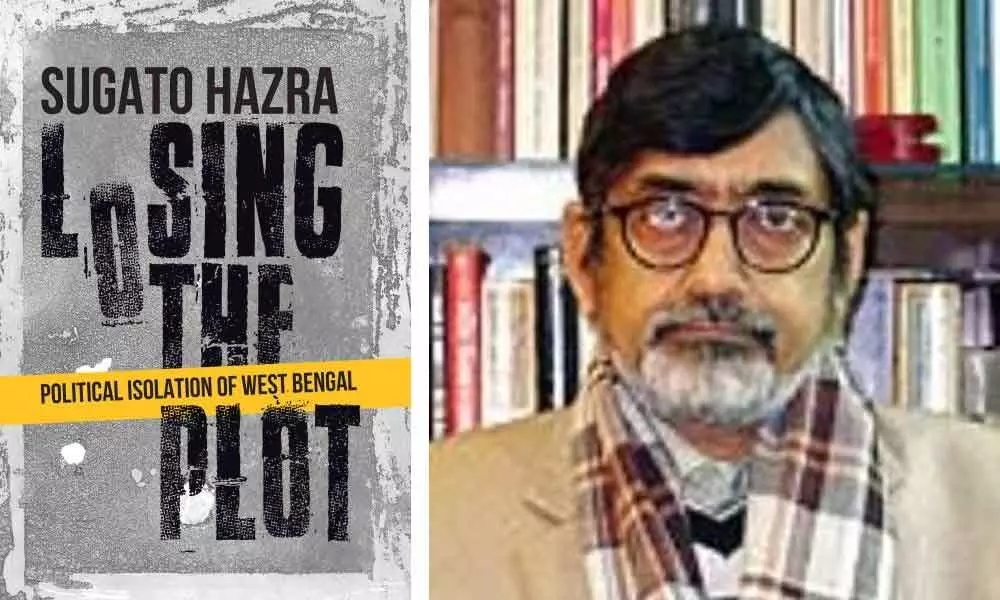Live
- Youth urged to donate blood to save lives
- National Energy Conservation Week from today
- Tourism projects to be put on fast track as VMRDA sets targets
- AI in KGBVs to empower students, build competencies
- Waltair Division observes ‘Energy Conservation Week’
- Srikakulam police bust two fake note gangs
- 3 held, 810 kg ganja seized
- Workshop on ‘Live Agri-technologies’ concludes at SPMVV
- Advancing Biomedical Research with NMR techniques
- Key Highlights of India in 2024
Just In
Has West Bengal dug its own political grave?


Sugato Hazra explores West Bengal's regional political narrative and its continuing isolation from the national mainstream despite changes in government.
Sugato Hazra explores West Bengal's regional political narrative and its continuing isolation from the national mainstream despite changes in government.
Sugato Hazra explores West Bengal's regional political narrative and its continuing isolation from the national mainstream despite changes in government. The cultural, economic, and social preponderance of West Bengal in the past, the author says, has given way to an unhappy decline because it has failed to engage with its politics in an effective manner
Public policy analyst Sugato Hazra presents a comprehensive account of West Bengals political history tracing the changing leadership, ideologies, and discourse from the birth of modern ideas and nationalism in the state which eventually spread across India to what he contends is its steady movement away from the national mainstream in recent times.
"Losing the Plot: Political Isolation of West Bengal" (Niyogi Books) delineates the political character of the state and its people, the dream of its early leaders, and the shattering of this in the course of time.
The author analyses in great detail the rift between Bengal's leadership and the rest of India since the days of nationalism. He explores West Bengal's regional political narrative and its continuing isolation from the national mainstream despite changes in government. The cultural, economic, and social preponderance of West Bengal in the past, the author says, has given way to an unhappy decline because it has failed to engage with its politics in an effective manner.
But has West Bengal really lost the plot?
Eventually focusing on the outcome of the 2021 Assembly elections that saw the Trinamool Congress return for a third term in spite of the whistle-stop tours of the Narendra Modi-Amit Shah duo, Hazra ascribes this to the state opting for isolation from Hindi heartland politics to maintain its "distinct regional identity". "In the final analysis, Mamata Banerjee's personal popularity in heading the state was stronger than the visiting Modi-Shah duo who had a set narrative. The BJP could not sell its ambitious manifesto to the people who felt that the proverbial one bird in hand was better than the BJP's promised two in the bush. And finally, the age-old antipathy of West Bengal towards the Hindi heartland narrative - an undercurrent that even Mahatma Gandhi had faced in his heydays – was too strong for Prime Minister Modi. Politically West Bengal has opted for isolation from Hindi heartland politics, thereby holding aloft its distinct regional identity," Hazra concludes. Is this premise valid, one wonders. Even so, the book is a valuable addition to the growing political literature in India.

© 2024 Hyderabad Media House Limited/The Hans India. All rights reserved. Powered by hocalwire.com






